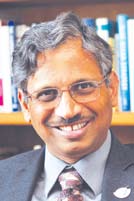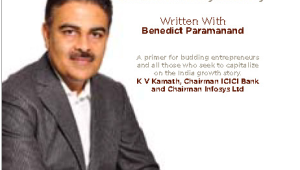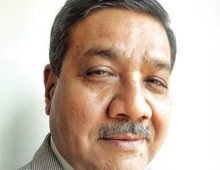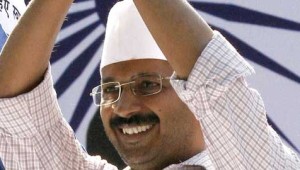 If the first twelve years are any indication, the twenty-first century risks going down in the history as a century of scandals. The leaders involved in scandals did not lack smartness but lacked wisdom. To thrive within the mind boggling complexity of today’s global business environment, we need to evolve beyond smartness into the domain of wisdom – the kind that is practical and accessible.
If the first twelve years are any indication, the twenty-first century risks going down in the history as a century of scandals. The leaders involved in scandals did not lack smartness but lacked wisdom. To thrive within the mind boggling complexity of today’s global business environment, we need to evolve beyond smartness into the domain of wisdom – the kind that is practical and accessible.
The authors have highlighted stories of leaders like Tim Cook, Ratan Tata, Alan Mulally, Wendy Kopp, Steve Jobs, Nipun Mehta and Aung san suu Kyi and have incorporated a number of inquiry tools that can put to use TODAY. Prasad Kaipa answers a few questions posed by ManagementNext
What’s the purpose of your book Smart to wise leadership?
To help leaders recognize the limitations of smartness and identify need for us to be wise in the times of complexity.
How do you define smart and wise leaderships?
All leaders have to make decisions, take actions and assign roles. Smart leaders focus on action and application of intelligence and to come up with right vision and strategy that benefits them irrespective of the context. Wise leaders repurpose smartness by using reflection and introspection as probes to bring context sensitivity. Then, they focus on noble purpose and enlightened self interest in addition engaging with their role fully without being emotionally entangled with it.
Does it attempt to transform smart leaders to wise leaders? If so, how?
The book shares stories of how smart leaders acted wisely and over time, became wise leaders. In our framework, we identified six capabilities that all leaders have to learn to excel and differentiated how various leaders act. With stories, questions and tips to help readers to make choices about appropriate leadership style, we hope leaders accelerate their journey towards wise leadership. In other words, we are raising questions about smart leadership, giving examples of wise leadership, helping readers to do gap analysis of themselves and giving them opportunity to transform themselves and people around them. Finally, it is their choice to change or not — wisdom cannot be imported from outside, one has to unlearn foolishness from inside out!
What does Indian literature have to say on this subject?
Indian literature has many stories and scenarios that we can learn from. Parables from various religions help us to gain prudence, develop humility, guide towards ethical behavior and bring pragmatic perspective to spirituality. In other words, Indian literature has much to offer in terms of not only spiritual wisdom but also practical wisdom. For example, Panchatantra stories, Hindu epic Mahabharata, Jataka Tales of Buddha are not alone. Even recently, there are several contemporary parable collections from people like Anthony De Mello (Song of the Bird), Mulla Nasiruddin stories, Tenali Ramakrishna stories are all about practical wisdom.
Where is leadership as a force heading? Why is the world producing weaker leaders these days?
Leadership is no longer about being a hero or having power and control. In the global, complex and technology dominant world, leadership is not about management role or positional power. It is as much about followership and the key is to realize that leadership is very different from the leader. By learning to contribute to others and helping others to become leaders, by being passionate but not fanatical, by focusing on noble purpose instead of self interest, anybody in the organization can make a big difference to others while benefiting oneself through enlightened self interest.
We are producing weaker leaders because ethics are not important anymore for many people and speed has become the mantra. In terms of doing business, anything goes as long as you produce results — fast! Finally, leadership is not anointed anymore but earned through trust, authenticity and contribution! These are spiritually eternal principles but have been forgotten in past few decades and are becoming more important all over again!
Book website
http://www.fromsmarttowise.com











Recent Comments